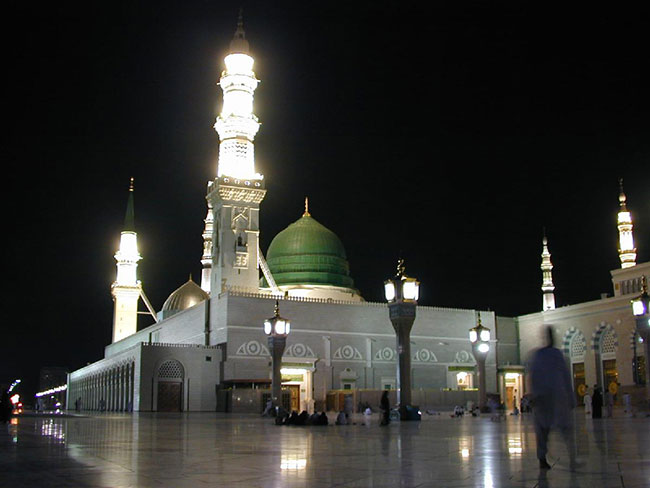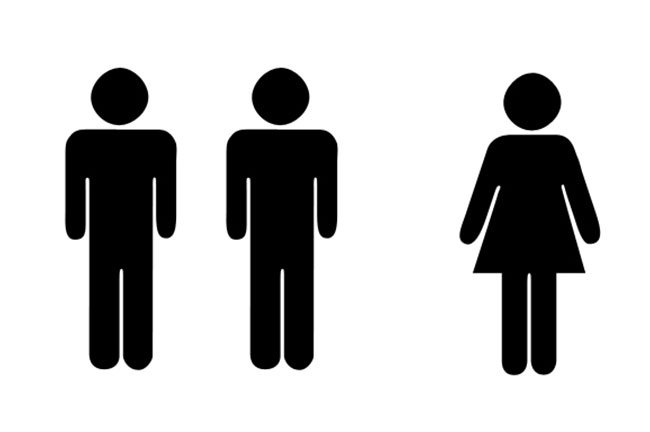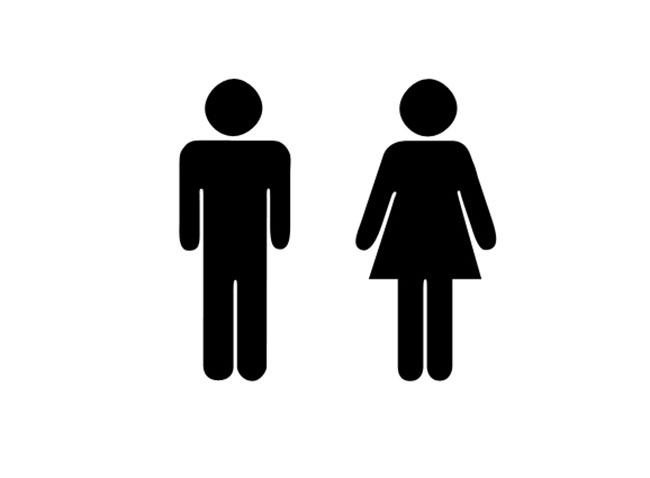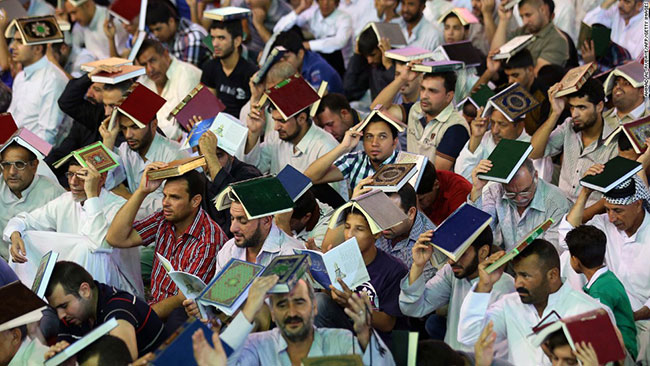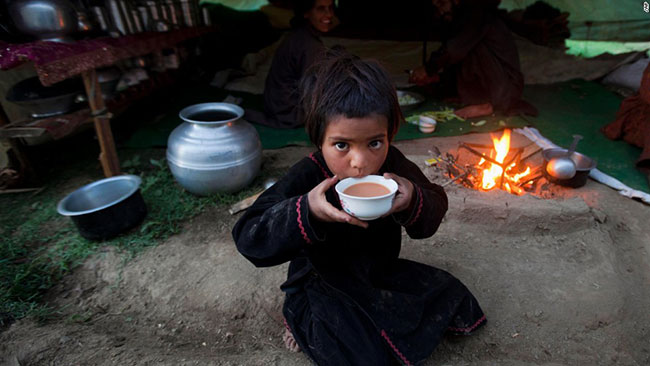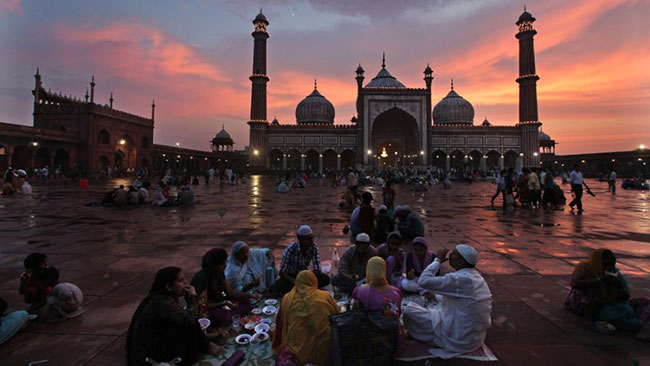Why does Holy Quran persuade Muslims to kill infidels?
Question:
Why does Holy Quran persuade Muslims to kill infidels?
Answer:
Our religion does not allow killing any innocent person regardless of his or her religion. The life of all human beings is sacrosanct according to the teachings of the Qur’an and the guidance of our blessed Prophet Muhammad -peace -be upon him and upon all the Prophets and Messengers of Allah.
The Qur’an says about the prohibition of murder:
وَلاَ تَقْتُلُوا النَّفْسَ الَّتِي حَرَّمَ اللَّهُ إِلاَّ بِالْحَقِّ ذَلِكُمْ وَصَّاكُمْ بِهِ لَعَلَّكُمْ تَعْقِلُونَ
“..Take not life, which Allah hath made sacred, except by way of justice and law: thus does He command you, that ye may learn wisdom.” (al-An’am 6:151)
And Allah says in the Qur’an:
وَلاَ تَقْتُلُوا النَّفْسَ الَّتِي حَرَّمَ اللَّهُ إِلاَّ بِالْحَقِّ وَمَنْ قُتِلَ مَظْلُومًا فَقَدْ جَعَلْنَا لِوَلِيِّهِ سُلْطَانًا فَلاَ يُسْرِفْ فِي الْقَتْلِ إِنَّهُ كَانَ مَنصُورًا
“Nor take life – which Allah has made sacred – except for just cause. And if anyone is slain wrongfully, we have given his heir authority (to demand Qisas or to forgive): but let him not exceed bounds in the matter of taking life; for he is helped (by the law)” (al-Isra’ 17:33)
According to the Qur’an, killing any person without a just cause is as big a sin as killing the whole humanity and saving the life of one person is as good deed as saving the whole humanity. (See al-Ma’idah 5:32)
However, your question is valid then how come the Qur’an says:
“kill them wherever you find them…”as it is mentioned in Surah al-Baqarah 2:191 and Surah al-Nisa’ 4:89. The answer is simple and that is you should read these verses in their textual and historical context. You should read the whole verse and it is better that you read few verses before and few after. Read the full text and see what is said:
وَقَاتِلُوا فِي سَبِيلِ اللَّهِ الَّذِينَ يُقَاتِلُونَكُمْ وَلاَ تَعْتَدُوا إِنَّ اللَّهَ لاَ يُحِبُّ الْمُعْتَدِينَ وَاقْتُلُوهُمْ حَيْثُ ثَقِفْتُمُوهُمْ وَأَخْرِجُوهُمْ مِنْ حَيْثُ أَخْرَجُوكُمْ وَالْفِتْنَةُ أَشَدُّ مِنْ الْقَتْلِ وَلاَ تُقَاتِلُوهُمْ عِنْدَ الْمَسْجِدِ الْحَرَامِ حَتَّى يُقَاتِلُوكُمْ فِيهِ فَإِنْ قَاتَلُوكُمْ فَاقْتُلُوهُمْ كَذَلِكَ جَزَاءُ الْكَافِرِينَ فَإِنْ انتَهَوْا فَإِنَّ اللَّهَ غَفُورٌ رَحِيمٌ وَقَاتِلُوهُمْ حَتَّى لاَ تَكُونَ فِتْنَةٌ وَيَكُونَ الدِّينُ لِلَّهِ فَإِنْ انتَهَوْا فَلاَ عُدْوَانَ إِلاَّ عَلَى الظَّالِمِينَ الشَّهْرُ الْحَرَامُ بِالشَّهْرِ الْحَرَامِ وَالْحُرُمَاتُ قِصَاصٌ فَمَنْ اعْتَدَى عَلَيْكُمْ فَاعْتَدُوا عَلَيْهِ بِمِثْلِ مَا اعْتَدَى عَلَيْكُمْ وَاتَّقُوا اللَّهَ وَاعْلَمُوا أَنَّ اللَّهَ مَعَ الْمُتَّقِينَ
“Fight in the cause of Allah those who fight you, but do not transgress limits; for Allah loves not transgressors. And kill them wherever ye catch them, and turn them out from where they have turned you out; for tumult and oppression are worse than slaughter; but fight them not at the Sacred Mosque, unless they (first) fight you there; but if they fight you, kill them. Such is the reward of those who reject faith. But if they cease, Allah is Oft-Forgiving, Most Merciful. And fight them on until there is no more tumult or oppression, and there prevail justice and faith in Allah; but if they cease, let there be no hostility except to those who practice oppression. If then any one transgresses the prohibition against you, transgress ye likewise against him. But fear Allah, and know that Allah is with those who restrain themselves.” (al-Baqarah 2:190-194)
For your second quotation also read the full text:
وَدُّوا لَوْ تَكْفُرُونَ كَمَا كَفَرُوا فَتَكُونُونَ سَوَاءً فَلاَ تَتَّخِذُوا مِنْهُمْ أَوْلِيَاءَ حَتَّى يُهَاجِرُوا فِي سَبِيلِ اللَّهِ فَإِنْ تَوَلَّوْا فَخُذُوهُمْ وَاقْتُلُوهُمْ حَيْثُ وَجَدْتُمُوهُمْ وَلاَ تَتَّخِذُوا مِنْهُمْ وَلِيًّا وَلاَ نَصِيرًا إِلاَّ الَّذِينَ يَصِلُونَ إِلَى قَوْمٍ بَيْنَكُمْ وَبَيْنَهُمْ مِيثَاقٌ أَوْ جَاءُوكُمْ حَصِرَتْ صُدُورُهُمْ أَنْ يُقَاتِلُوكُمْ أَوْ يُقَاتِلُوا قَوْمَهُمْ وَلَوْ شَاءَ اللَّهُ لَسَلَّطَهُمْ عَلَيْكُمْ فَلَقَاتَلُوكُمْ فَإِنْ اعْتَزَلُوكُمْ فَلَمْ يُقَاتِلُوكُمْ وَأَلْقَوْا إِلَيْكُمْ السَّلَمَ فَمَا جَعَلَ اللَّهُ لَكُمْ عَلَيْهِمْ سَبِيلاً سَتَجِدُونَ آخَرِينَ يُرِيدُونَ أَنْ يَأْمَنُوكُمْ وَيَأْمَنُوا قَوْمَهُمْ كُلَّ مَا رُدُّوا إِلَى الْفِتْنَةِ أُرْكِسُوا فِيهَا فَإِنْ لَمْ يَعْتَزِلُوكُمْ وَيُلْقُوا إِلَيْكُمْ السَّلَمَ وَيَكُفُّوا أَيْدِيَهُمْ فَخُذُوهُمْ وَاقْتُلُوهُمْ حَيْثُ ثَقِفْتُمُوهُمْ وَأُوْلَئِكُمْ جَعَلْنَا لَكُمْ عَلَيْهِمْ سُلْطَانًا مُبِينًا
“They but wish that ye should reject Faith, as they do, and thus be on the same footing (as they): so take not friends from their ranks until they flee in the way of Allah (from what is forbidden). But if they turn renegades, seize them and slay them wherever ye find them; and (in any case) take no friends or helpers from their ranks. Except those who join a group between whom and you there is a treaty (Of peace), or those who approach you with hearts restraining them from fighting you as well as fighting their own people. If Allah had pleased, He could have given them power over you, and they would have fought you: therefore if they withdraw from you but fight you not, and (instead) send you (guarantees of) peace, then Allah hath opened no way for you (to war against them). Others you will find that wish to gain your confidence as well as that of their people: every time they are sent back to temptation, they succumb thereto; if they withdraw not from you nor give you (guarantees) of peace besides restraining their hands, seize them and slay them wherever ye get them; in their case We have provided you with a clear argument against them.
(Al-Nisa’ 4:89-91)
Now tell me honestly, do these verses give a free permission to kill anyone anywhere? These verses were revealed by Allah to Prophet Muhammad at the time when Muslims were attacked by the non-Muslims of Mecca on a regular basis. They were frightening the Muslim community of Medina. One may say using the contemporary jargon that there were constant terrorist attacks on Medina and in this situation Muslims were given permission to fight back the “terrorist”. These verses do not give permission to “terrorism” but they are a warning against the “terrorists.” But even in these warnings you can see how much restraint and care is emphasized.
It is important that we study the religious texts in their proper context. When these texts are not read in their proper textual and historical contexts they are manipulated and distorted. It is true that some Muslims manipulate these verses for their own goals. But this is not only with Islamic texts, it is also true with the texts of other religions. I can quote dozens of verses from the Bible which seem very violent, if taken out from their historical context. These Biblical texts have been used by many violent Jewish and Christian groups. Crusaders used them against Muslims and Jews. Nazis used them against Jews. Recently Serbian Christians used them against Bosnian Muslims. Zionists are using them regularly against Palestinians.


